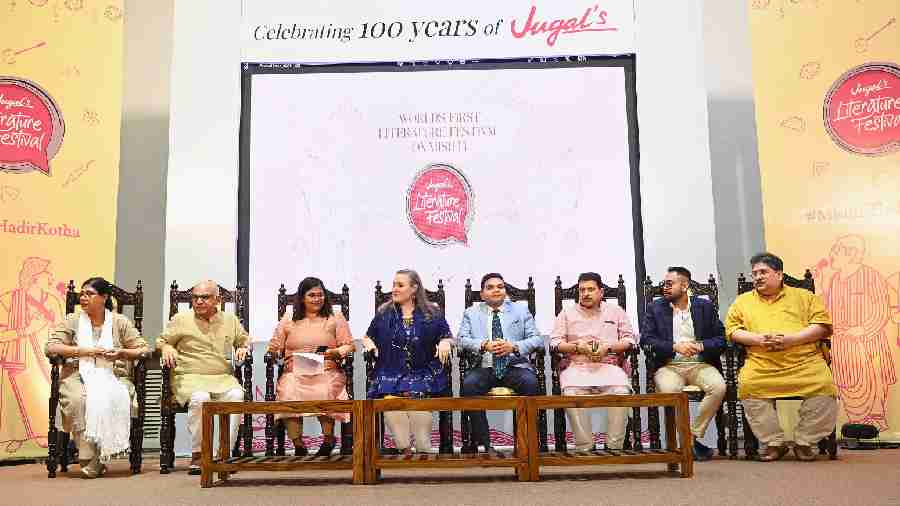With Jugal’s, an iconic sweet shop completing a century, the city witnessed a one-ofa-kind festival that brought leading experts in the industry and beyond, including food historians, writers, culinary experts, dairy experts, economists and industrialists, from both within and outside Bengal. And they all had one thing in common — the love for mishti.
Jugal’s Literature Festival in association with The Telegraph, a two-day festival, that commenced on February 11 at Town Hall, aimed at bringing together the unique culinary heritage of the sweet-loving city. With its sessions and varied panellist, the festival celebrated mishti or the sweetmeats of Bengal that is also loved by 300 million Bengalis worldwide. Here are the highlights.
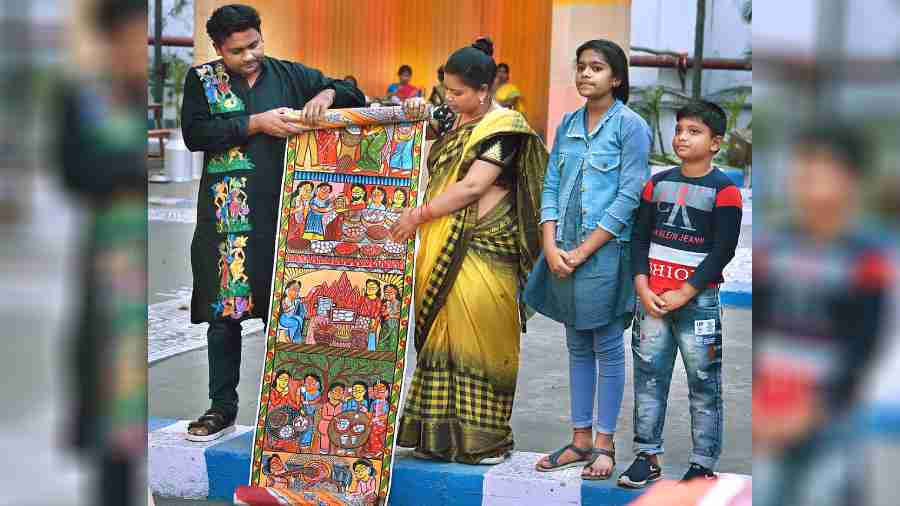
Mishtiis intrinsic to the culture of Bengal and it’s no surprise that it’s also part of local folklore. Displaying a patachitra this family from rural Bengal sang songs dedicated to sweets, thereby adding a sweet melody to the festival.

Daniel Sim, deputy-consul general of Australia enjoying his sweet treats.
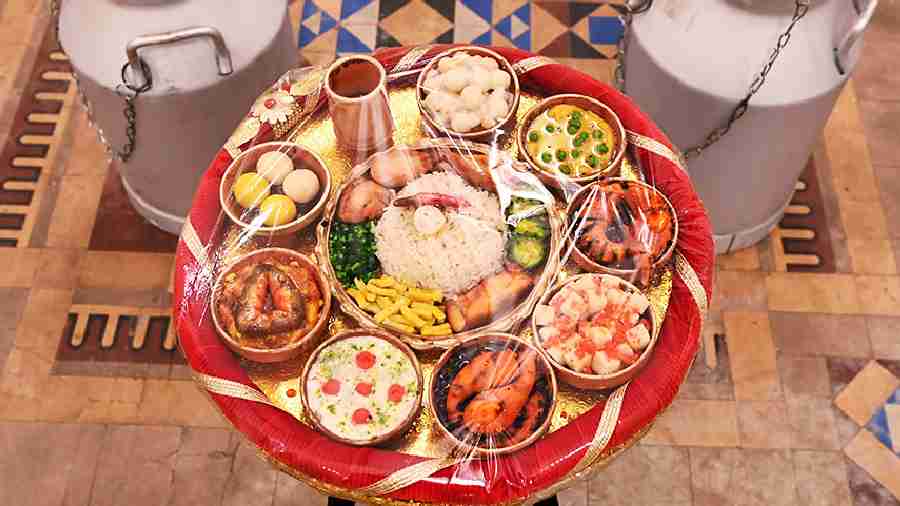
This spread wowed everyone for its deceptive factor. Everything on the platter was made of the ingredients that make mishti.
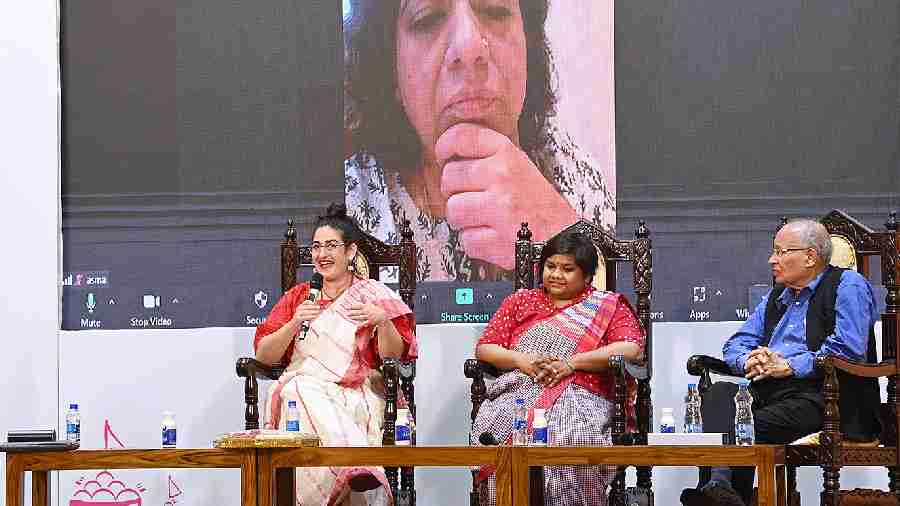
Is mishti sexist? Asma Khan, chef and owner of London restaurant Darjeeling Express; Lily Kelting, assistant professor of FLAME University; Robin Ghosh, managing director, Infocom and president, Santiniketan Society for Youth Empowerment; and Ishita Dey, assistant professor and food anthropologist at South Asian University, with food writer Salmoli Mukerji as the moderator, embarked on to discuss the gender and various dynamics of mishti. While Asma, who joined online, believed mishti is feminine, Ghosh pointed out how he perceived the mishti industry to be an empowering avenue for women. The session also talked about the genesis of sweets as a pure offering to God to the kitchens steered by women.
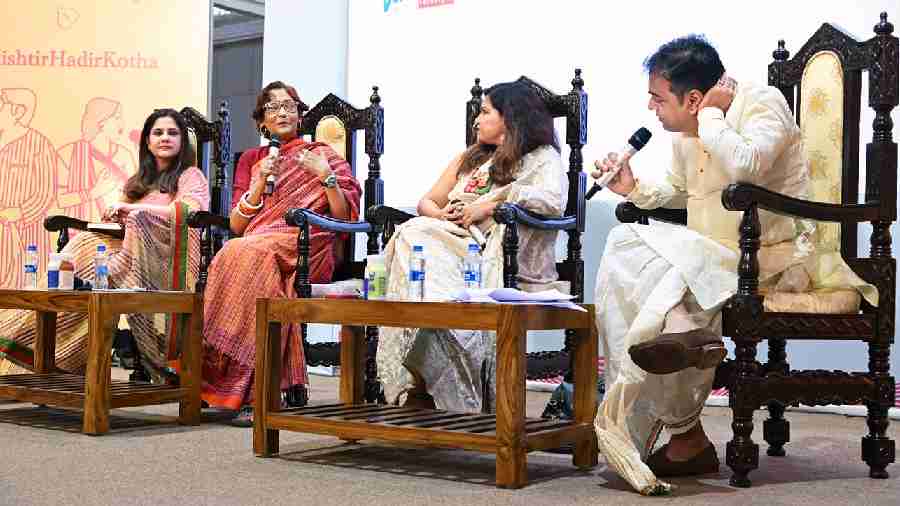
The Art of Mishti looked at the star of the festival as an art form, from both culinary and design perspectives, and discussed what the future holds for karigarsor craftsman. Moderator Indradeep Narayan Banerjee spoke to Bangladeshi fashion designer Bibi Russell; additional secretary of the department of labour Shaon Sen, and politician-activist Saira Shah Halim. Russell called mishti-makers artists instead of craftsmen and added that today, packaging has become vital. “We need to provide artists with the infrastructure to keep up with the times, and practice creativity without losing the essence of mishti, respecting its culture and heritage.” Sen, on the other hand, pointed out that nationally, there is no proper module for mishti-making as an art form anywhere, not even in hotel management courses and that’s the reason mishtias a craft will have difficulty surviving. She even implored that this situation needs to change. Finally, Halim pointed out that although women craft mishtis in the kitchen, when the process gets commercialised, often men become the karigars. “Since women contribute to the craft of mishti-making at home, they are capable of creating as much beauty in the craft as men, and therefore ought to be more visible in that part of the commercial process,” Halim added.
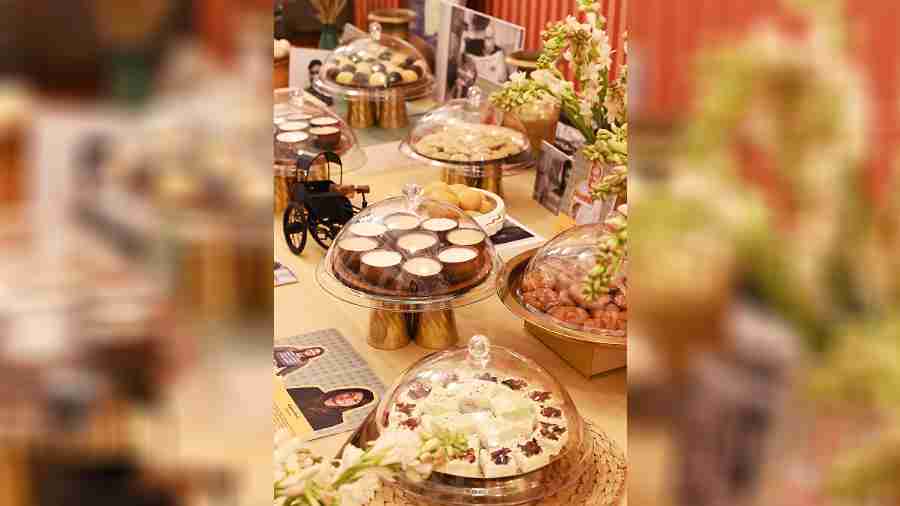
The festival also displayed the rich history and trajectory of sweetmeats in Bengal including the different varieties of milk and other ingredients that has been in use.
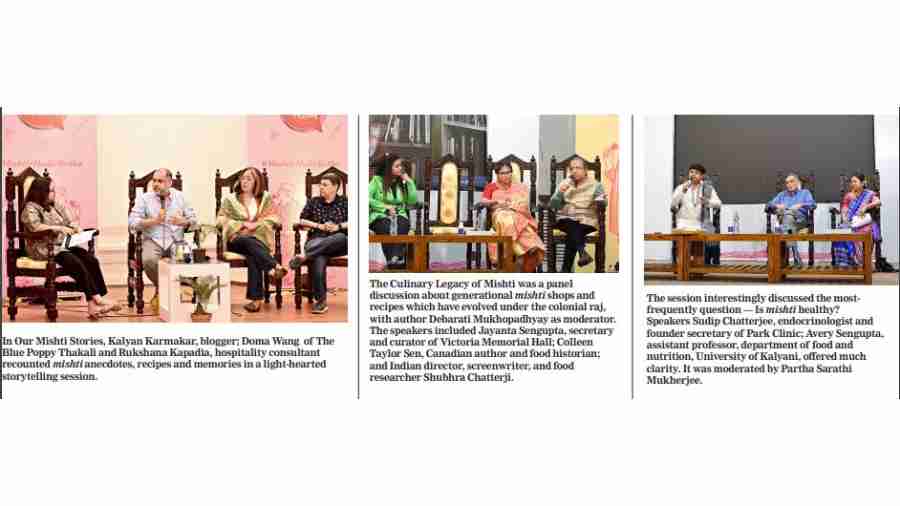
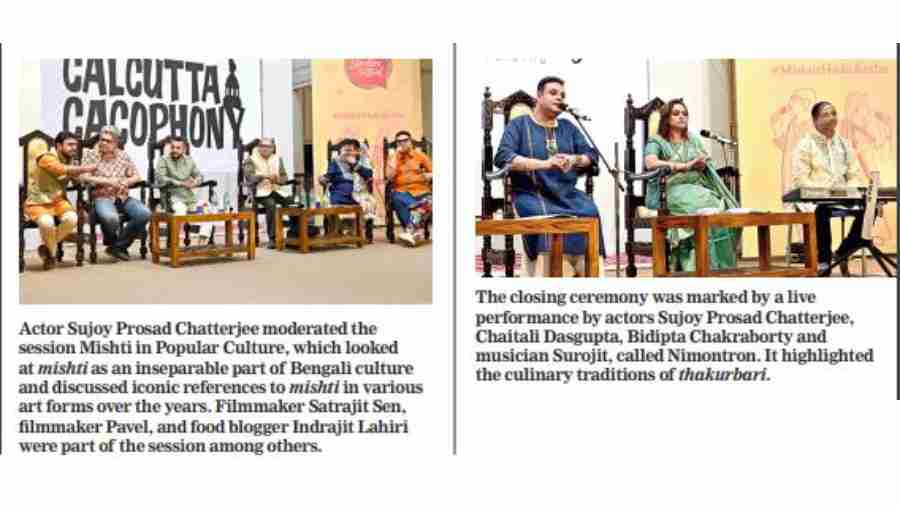
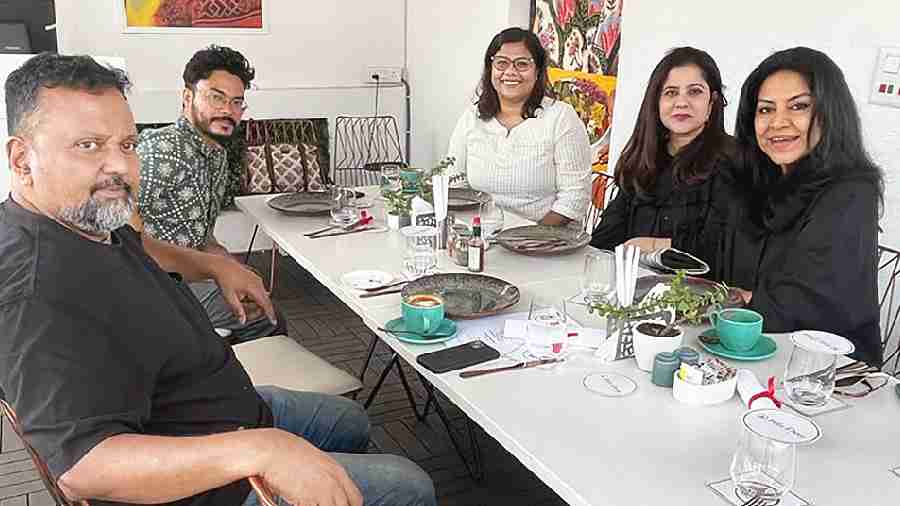
JLF panellists enjoyed a delectable brunch at Milee Droog Coffee & Bistro with Lahana (centre).
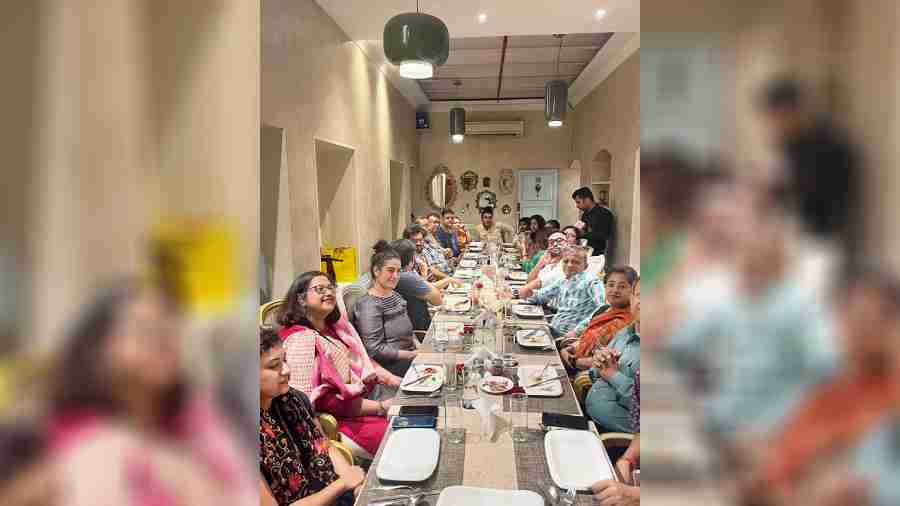
Post the day-long sessions at Town Hall, panellists unwind with a sumptuous spread at Corner Courtyard.
